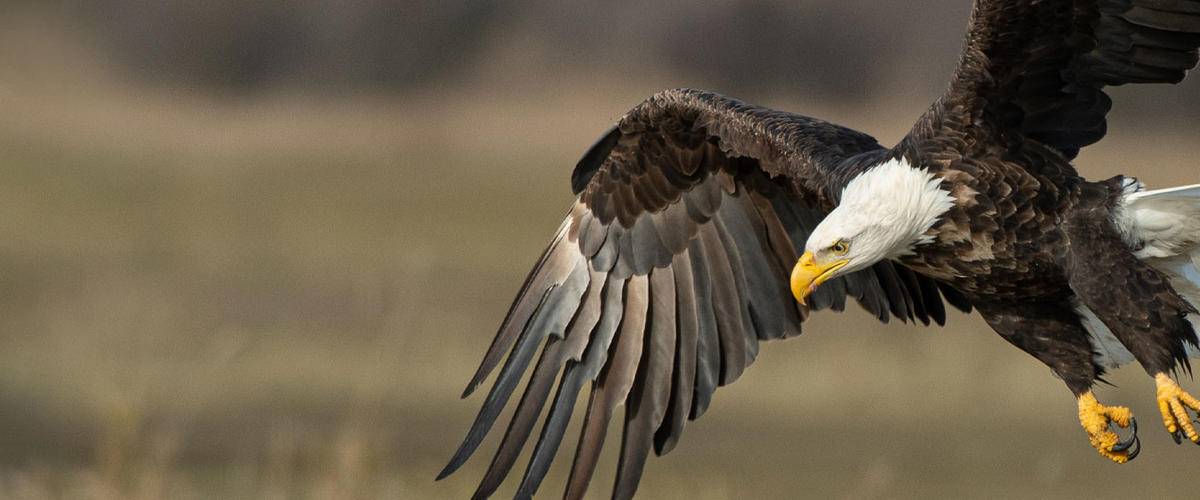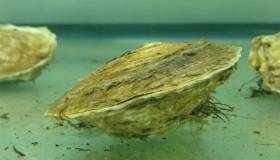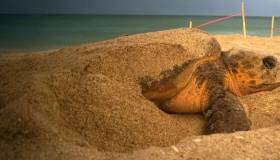
DENVER/January 13, 2022 – The long-term health and recovery of bald eagles continues to be impacted by lead, found Morris Animal Foundation-funded researchers at Cornell University. The team reported their findings in the Journal of Wildlife Management and will use their research to inform policy and public communication about lead exposure in bald eagles and other wildlife.
“You may see bald eagles now where you didn’t before, but their recovery was reduced because lead was present in the environment, particularly from hunters’ bullets in carcasses,” said Dr. Krysten Schuler, Assistant Research Professor at Cornell University’s Department of Population Medicine and Diagnostic Sciences.
For the study, the team wanted to determine if bald eagle population mortality and recovery was impacted by the presence or absence of lead in the environment. The researchers gathered data from more than 1,200 eagle necropsies from seven of the northeastern United States conducted between 1990 and 2018.
The research team created a population matrix model, a mathematical representation of the life history of the species, to look at the population dynamics associated with rates of annual survival and fertility for eagles at all ages. Then they compared the eagles’ actual long-term growth rate, with no alterations, to hypothetical dynamics that would have risen in the absence of lead. They also looked at different life-stage survival rates.
The team concluded that lead contamination depressed the long-term growth rate of eagles by 4.2% − 6.3% over the past three decades. They theorize eagles compensated for this decreased growth rate by distorting how individuals moved throughout their lifecycle. With an absence of many fledglings and older adults, more juveniles were able to move into high quality nesting sites to breed.
On-going lead contamination depletes the resilience for the region’s eagles between viability and extinction, hampering the ability to absorb additional threats, such as habitat loss, infectious disease and climate change. With 1,400 breeding pairs now in the seven-state region, the cumulative effect of these threats when combined with lead exposure continues to depress the iconic bald eagle.
Schuler speculates other species in the eagles' habitat that scavenge on lead-contaminated carcasses could suffer the same population-scale impacts.
“This study was focused on eagles, but they aren’t the only animals affected by eating lead-contaminated meat,” said Dr. Janet Patterson-Kane, Morris Animal Foundation Chief Scientific Officer. “We need to be aware that many key populations may suffer and, most importantly, that this is an entirely preventable source of mortality.”
The Cornell team is now working with communication specialists and trying to partner with hunter education instructors to educate hunters on the environmental dangers of hunting with lead. They also developed interactive software so people in other areas of the country can analyze nesting eagle data and lead-related morality.
Morris Animal Foundation, headquartered in Denver, is one of the largest nonprofit animal health research organizations in the world, funding more than $142 million to date in studies across a broad range of species.
Citation: Hanley, B. J., A. A. Dhondt, M. J. Forzán, E. M. Bunting, M. A. Pokras, K. P. Hynes, E. Dominguez‐Villegas, and K. L. Schuler. 2021. Environmental lead reduces the resilience of bald eagle populations. Journal of Wildlife Management 1–18. https://doi.org/10.1002/jwmg.22177
About Morris Animal Foundation
Morris Animal Foundation’s mission is to bridge science and resources to advance the health of animals. Founded by a veterinarian in 1948, we fund and conduct critical health studies for the benefit of all animals. Learn more at morrisanimalfoundation.org.
About Cornell University
Cornell University is a world-class research institution known for the breadth and rigor of its curricula, and an academic culture dedicated to preparing students to be well-educated and well-rounded citizens of the world. Its faculty, staff and students believe in the critical importance of knowledge—both theoretical and applied—as a means of improving the human condition and solving the world’s problems. With campuses in Ithaca, New York and New York City, and a location in Doha, Qatar, Cornell is a private, Ivy League research university and the land-grant institution of New York State.




